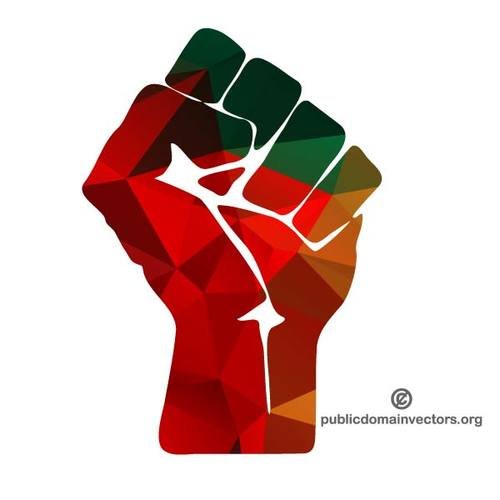
“Survival of the fittest” is a phrase that is far too prevalent in our society ever since the dawn of humankind. Most people like to think of themselves as better or their needs as more important than everyone else’s. Therein lies the root of conflict.
Wars have been waged and conflicts have arisen all because of our sense of self. There’s nothing really wrong with that — it’s a basic human instinct. Even animals — albeit lacking a similar sense of self — aren’t above competition. Going against it would feel like going against the flow of our very nature. This sense of self has kept us alive for centuries; expanding to horizons beyond our reach, conquering frontiers which are otherwise impossible to subdue all for the reason of bettering our state. However, this sense of self is also responsible for holding us back. For all of mankind’s collective triumph, the thing that has held us back is our inherent selfishness — if not for ourselves, then for a select group of people.
Smells like Collectivist Spirit

So, is Communism a solution? Not exactly. It’s only a workaround that flattens the capitalist triangle, bringing down the upper classes to equal footing with the lower classes. Glaring flaws include: the removal of incentive to work hard, differently structured corruption and massive amounts of civil unrest. It would be an unending cycle of revolutions, public trials and executions. In an ideal world, a classless utopia is a desired outcome, but the world that we live in is far from ideal. (Sorry, Karl)
The rot is from the inside — the rot stems from our sense of self. We can’t convince everyone to follow our ideals and expect them to not have conflicting ideas of their own. Collectivism is highly unachievable in a non-homogeneous world.
Look to the Ant
As an example of an ideal society, let us look at ants. It’s amazing how many aspects of ants humans study and try to emulate. (Same goes for bees.) A colony works together to achieve a unified goal — that’s an astonishing feat of collectivism onto itself. But, even colonies aren’t classless. Every ant has a specific purpose, and even though they perform their respective directives perfectly, there are still ranks attached to them. Also, human beings wouldn’t have the same satisfaction of following directives like ants do because — quite unfortunately — we aren’t built like ants or bees. Our brain is wired differently, that’s why we can only take bits and pieces of their example and not as a whole.
Aside from patterning algorithms and procedures on ant (and bee) movement, what other knowledge can our miniscule friends impart to us? I’m glad you asked. Have you ever seen ants caught in a flowing river? It’s an amazing sight to behold; they bundle together and they create a raft. They literally pull themselves to save their lives. That is nature at its finest. Read my words: they … pull … themselves … up.

In Retro(re)spect
That is where Communism had it wrong. Why not instead of bringing the upper classes down, why not pull the lower classes up? It’s a daunting task that isn’t all that easily said, and even more difficult to perform — as is all things that are worth doing. A massive social reconditioning should be done, with no other agenda than to improve the state of human kind. As a species, we are long overdue for an improvement. We’re in a millennium-long impasse that shows no sign of movement.
Of all the great thinkers and influential movers throughout history, why haven’t we progressed as a species the way we should have by now? Put simply, they are woefully outnumbered by those who refuse change, out of fear that they would be knocked off their pedestal. It’s a legitimate fear to have; no one completely knows what other people are capable of. One might be helping to pull up someone who would be instrumental to one’s downfall. But, that is where that line of thinking derails. There is no downfall because there are no figurative pedestals to stand on.
Mentality and attitude are key things that human beings need to proactively change to improve. This is where the sense of self should kick in. Not so that one can be better than everyone else, but so that one could be better than one’s current state. Eradicating the competitive nature of human beings is key to the removal of selfish intentions for improvement. That’s not to say that non-competitiveness doesn’t have its drawbacks. Collectivism causes some people to slack off, relying on the effort of others to pull everyone up because no one penalizes them for it. Without motivation, this would drag down the ones who do exert effort, leading them to lose their motivation and halting progress.
My One Peso (Because apparently two cents (0.02 USD) is equivalent to 0.94 PHP or roughly 1 Philippine Peso, but I digress)
Look, I'm no "great thinker", and I'm certainly no expert on the subject. I don't even know why you've read this post up to this point. It's like you have nothing else to do or you were half-expecting a "breaking the fourth wall", meta commentary. Whatever the case, I would just like to use this paragraph to show my appreciation to you, dear reader.
So, why should we even try if it’s a zero-sum practice? Who ever said it is? We’ve lived all of our lives under the shadow of competition — pit against each other for even the most trivial of things. Why not detach ourselves from social norms for a bit to evaluate what could be done to inject change? Step out of the rat race, if you will, and breathe in the fresh air.
Some posit that competition breeds progress, only because it’s the only thing they have ever known. It’s only natural to fear the unknown — that’s why many people aren’t fond of the dark — but fear is only meant to suppress. As Ralph Waldo Emerson put it: “Unless you try to do something beyond what you have already mastered, you will never grow.”
Personally, I am not above competitiveness — if I’m being honest, I would say that I used to be a very competitive guy, so much so that it almost became second nature. Back in college, I was called out by a group mate for always comparing our output to other groups. In my mind, I wasn’t comparing because I wanted to be better than everyone else, but that’s how it came out. That was when I realized how competitive I became. It really wasn’t a productive exercise — if anything, it was detrimental. I decided then and there that it was time to change.
It was hard, it took years, and even now I show some signs — some remnants — of competitiveness. It’s a hard trait to shake off, especially because it was ingrained to our brains ever since we were children. Now, whenever I would play games or join contests, I gain a whole new perspective. I play chess to get to know a person’s character in different situations. I join contests so that I could network and gain experience. It’s a liberating feeling not competing to win. I have grown leaps and bounds ever since I decided to drop my competitiveness.
The Challenge (or TLDR for those slang-savvy people)
The abolition of competitions would not equate to the delay in progress. Far from it. Non-competitiveness only seeks to do away with violence and misunderstanding. Imagine a world where everyone doesn’t do things for themselves or for only select people, where every action culminates into one great “all together now.” Wouldn’t that be a world worth looking forward to? Happiness wouldn’t be a pursuit — it would be the norm. If only everyone let down their guard and permitted everyone else to win, then everyone would be victorious.
It sounds like a hazy, hippie dream that seems far-fetched, but it is easier to achieve than we are led to believe. Each day, do one thing for other people and increase that by one the following day. Give up your place in a queue, give up your seat on the bus. Play a competitive game for fun, not minding whether you win or lose. These are small things, but once you increase the scale and value, these tiny ripples would be enough to change the course of oceans.
Up for the challenge? Do you think you can outperform me? I’d like to see you try.
